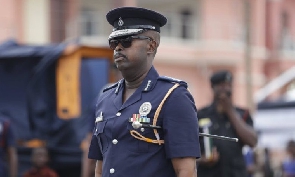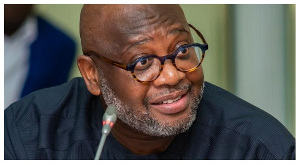Some readers of My blog cannot fail to recall that four years ago, in an electioneering season, this author wrote an article with the above title. Today, the political cycle of elections has reached a point when the question of the usefulness of opinion polls becomes relevant. It is the time when the few polls that are already out must be interrogated critically. They must not simply be accepted gullibly or dismissed outright.
Whatever may be the reasons for conducting opinion polls, the outcomes need to be put to the light and examined with due attention. Opinion polls are meant to be taken seriously even if they were proven to be conducted shoddily.
Like it or not, opinion polls work in winning over most uncommitted or floating voters who would like to identify with candidates proclaimed as most likely to win. “It is silly wasting your vote on losers” is a popular cliché that produces the bandwagon effect. Ghanaians, by nature, want to be associated with the winning side. What this does is to undermine choice of the most capable of the candidates or parties.
Of the polls that have been out recently, the one conducted by the London-based Economist Intelligence Unit (EIU) has attracted most comments. This pollster is perceived as quite credible and not likely to be a hireling who would be prepared to throttle out results that would suit the highest bidder. According to the EIU Report, the results of the November 7 election will be pretty close. It, however, favours Nana Akufo-Addo and the NPP mostly likely to come out winners. It is good news for the opposition. One can detect the glee in their voices and their eyes. Nonetheless, the opposition has vowed to eschew complacency: “We need to work harder to make this come to fruition.”
Interestingly, the chieftains of the NDC are putting a similar gloss on the report. They have said the gloom that this report conveys would rather spur a sense of urgency in their campaign efforts to win the elections. Thus, for once, the attitude of the two main parties is at variance with known propensity of politicians to dispute polls that show them in a losing position or laud those that show them as winners.
Indeed, in mature democracies of high literacy, politicians value the work of pollsters and do collaborate with them to dig deep to know where the votes are likely to be won or lost. Clearly, polls assist to extend the reach of the messages of the parties and candidates.
The EIU Report has provided a great source of news discourse on the airwaves and the newspaper columns. Sad to say, in many cases the poll conclusion is not intensely interrogated; it is just put out as a fact instead of the media playing its role as the link between the public and pollsters by questioning the content and methods used by pollsters.
Even as a layman - who has had to work with survey reports - this author sometimes finds some of the methods used by pollsters a bit amateurish. They do not state the basis of their deductions and they do not take into consideration the Ghanaian culture of artful dodging when responding to questions. More important, some pollsters do not seem to pay attention to how questions are sequenced and phrased. Or, indeed, how representative are the samples interviewed. For example, after a heated news analysis, texts received from the listeners or readers are tallied hastily and results declared. How many Ghanaians can send text messages?
One other missing in the opinion polls is that pollsters rarely tell us whether respondents are registered voters and how demographics such as gender, age and recent human resettlements affect political preferences.
For the 2008 and 2012 general elections in Ghana, most of the polls had them all wrong, predicting a loss for the NDC. Admittedly, the margins of wins for the NDC were razor-thin. A swing of some five per cent voting pattern could have handed the NPP victories on both occasions. On the contrary, Prophet Timtokeh Balogun (TB) Joshua had both right.
In 2008, he predicted a win for Prof. Atta-Mills in three rounds of voting. In 2012, though a bit reticent, the Prophet said, “Hmm, we must pray for that nation.” Events that erupted after the 2012 Election resulting in a long drawn-out high court petition proved him right. This Prophet is popular with both NDC and NPP politicians. (They flock to the Synagogue Church of All Nations in Lagos). Ghanaians would trust his prediction of the result of November 7 Election. Speak, the great man of God. Ghanaians are all ears.
Opinions of Tuesday, 12 April 2016
Columnist: Joe Frazier


















